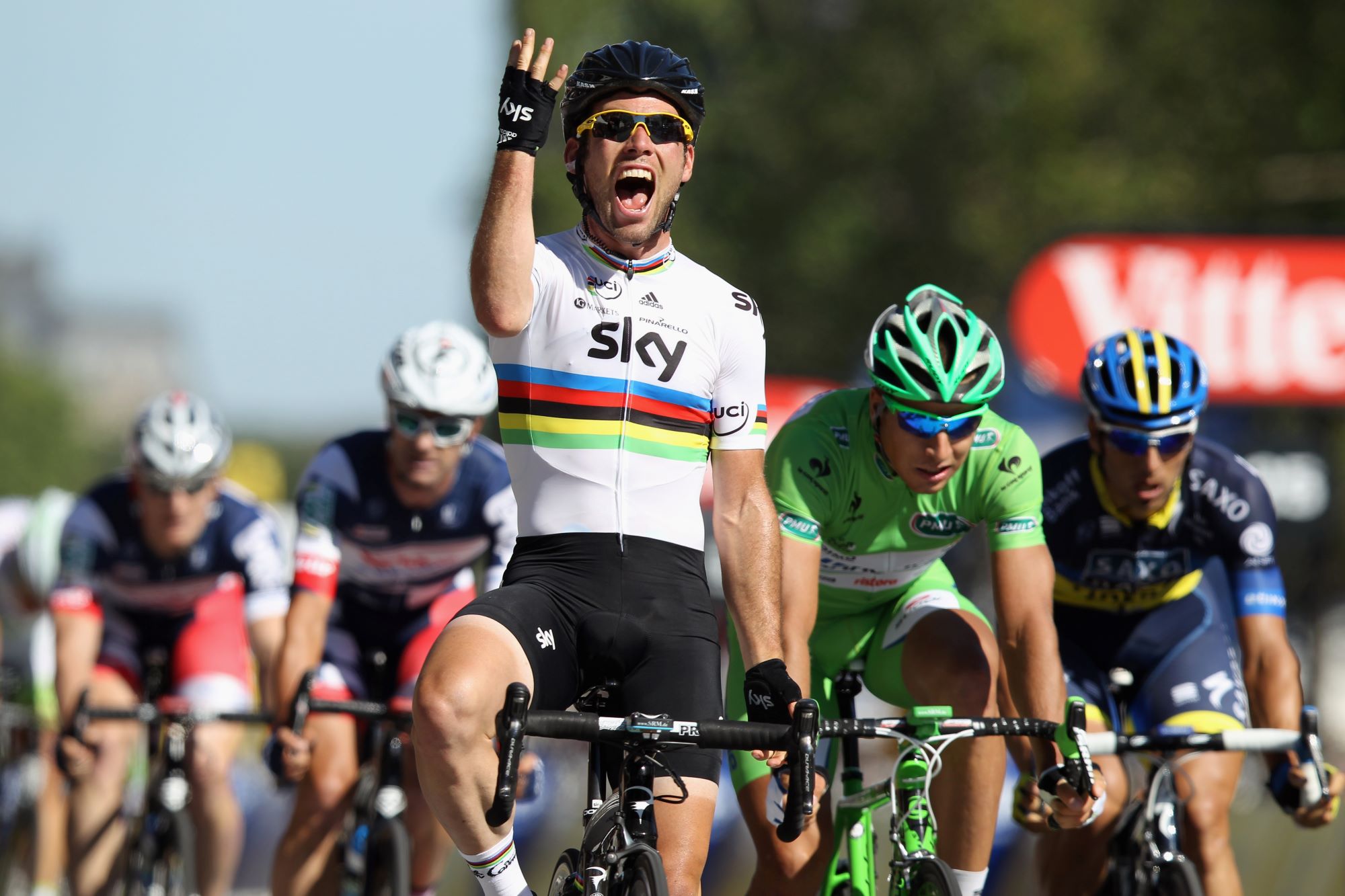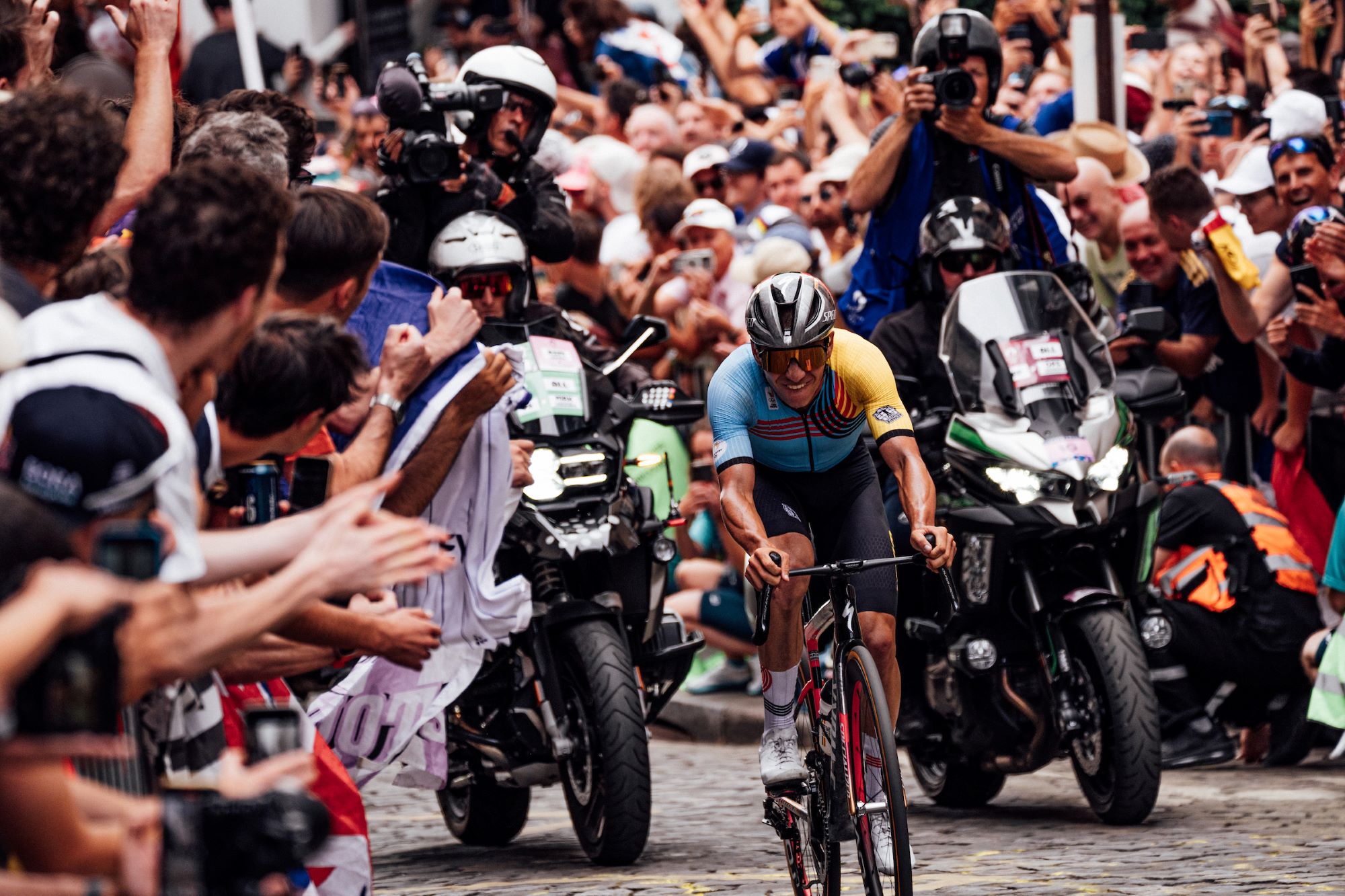
Other than the final ten kilometres or so, is there really any point in watching the final stage of the Tour de France in Paris? That’s the question many of my non-cycling friends have regularly put to me over the years when I would religiously tune in to the final day’s procession into the French capital. And to be fair, they probably did have a point.
There’s rarely any exciting racing in any shape or form until the various sprint teams start to get organised ready to tee up their elected fast man for the bunch kick along the Champs-Élysées for the unofficial sprinters World Championships. Unwritten tradition dictates that the race operates in that way on the final day, but surely a bit of variety could do no harm once in a while.
I’ve often sat and urged someone to try something completely unexpected with the aim of spoiling the party for the sprinters. That’s not because I dislike watching a high-octane sprint unfold, but more because mixing it up a little gets people excited and draws new viewers in.
After all, surely that’s why we all watch sport? To be entertained and to be surprised by what’s unfolding before us. I can remember being completely transfixed as a kid when Alexander Vinokourov won in Paris in 2005, and it would make for great viewing to see another rider pull off something similar in the years ahead.
This is why ASO’s reported idea to adjust the final stage of this year’s race to include the Butte Montmartre cobbled climb, made famous by the Paris Olympics road events, should be applauded, however unrealistic it may or may not be. The possibility of the Olympics circuit within Montmartre being replicated by the Tour was quickly ruled out in August by the Tour’s technical director Thierry Gouvenou, although an article in Le Parisien this week suggested that the idea isn't dead completely.

If it does get off the ground, then it will open the race up to an array of different dramatic possibilities, particularly given the high calibre of riders currently operating at the top end of the sport. But, in spite of the exciting prospect that the idea represents, it also still leaves a lot of questions.
For one, how would the riders final general classification times be calculated and would the stage then no longer be for purely ceremonial purposes? If so, whilst it is unlikely, it could mean that there is a very slim possibility that the action could literally go down to the wire in the fight for overall victory. Surely that alone is a thought that many cycling fans would relish, as would the perennial showman Tadej Pogačar if he finds himself a handful of seconds down on Jonas Vingegaard going into the final day this year.
But on the other hand, completely losing the tradition of a bunch dash for the line on the Champs-Élysées could impact the race in other unwelcome ways. What other incentive would then remain for 95% of the race’s sprinters to finish the event if they didn’t have their opportunity to shine on stage 21?
Sprinting is rapidly evolving and changing. There are multiple riders that now regularly contest the green jersey who could probably use a cobbled climb in Montmartre to their advantage and still win the stage - Wout van Aert, Biniam Girmay and Michael Matthews being three obvious examples, although what would then be left for the more purist sprinters, the likes of Jasper Philipsen, Dylan Groenewegen and others. The answer is not a lot.
Given that riders in that ilk add drama and excitement to the race in different ways to the more Classics-orientated riders and Grand Tour winners, it would be a shame to completely eradicate their final chance for glory and to see a fair few of them abandon early on.
Ultimately, the prospect of change is good and should be applauded. The success of the final stages in and around Nice last year showed that an adaptation to the course, enforced or not, can work for the race in the future. But erasing the possibility of a bunch sprint in Paris should only be brought into play for one year only. It would make for an exciting and interesting final day once, but bringing in a spectacle like that indefinitely to the race could do more harm than it really would be worth.







